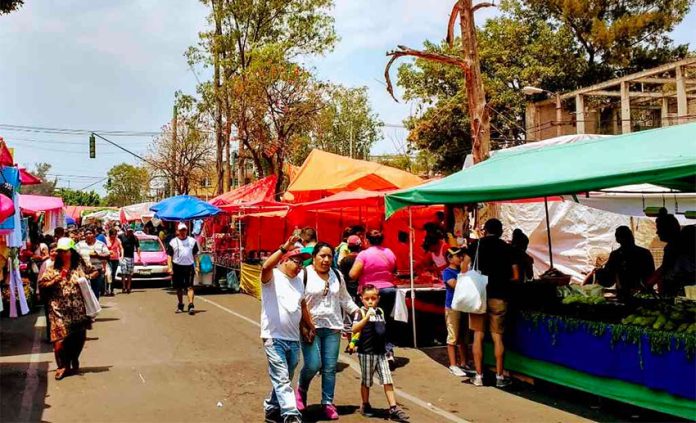Boroughs in Mexico City have closed down over 450 open-air and mobile markets in order to mitigate the spread of the coronavirus in the city.
The markets, called tianguis or mercados sobre ruedas (markets on wheels), are generally cramped and crowded, and not places where physical distancing can be effectively practiced.
Authorities closed down 125 open-air markets in Coyoacán, the city’s largest borough, and 30 in Azcapotzalco. Iztacalco halted the activities of all of its 31 tianguis for the rest of May.
The borough of Álvaro Obregón closed 20 of its 104 tianguis, and only five of the 60 registered tianguis in Cuauhtémoc, where the city’s historic center is located, will remain active during the quarantine period.
Magdalena Contreras closed its open-air markets as of Tuesday until Sunday, May 17. The borough’s five bricks-and-mortar markets will remain open.
The 140 open-air markets in Tlalpan will not close completely, but borough administrators have been in communication with market organizers to discuss implementing physical distancing measures and only selling basic necessities.
In Coyoacán and Tlalpan alone, the measures will affect 2,100 merchants, said Enrique Espejel, head of a tianguis vendors’ organization in the boroughs.
“We would have liked for the decisions and rules in the tianguis to have been toughened up from the beginning, since we’ve also seen transmissions and deaths due to the virus [in open-air markets],” said Espejel without specifying the number of deaths.
Authorities have also closed down 38 of the city’s 329 bricks-and-mortar public markets in response to the coronavirus.
Mexico’s artisans and folk artists have struggled during the Covid-19 emergency period in the face of such market closures and the lack of people in the streets to make sales.
The threat of transmission even forced the closure of a tianguis in Chilapa, Guerrero, for the first time in 500 years.
Source: El Universal (sp)
